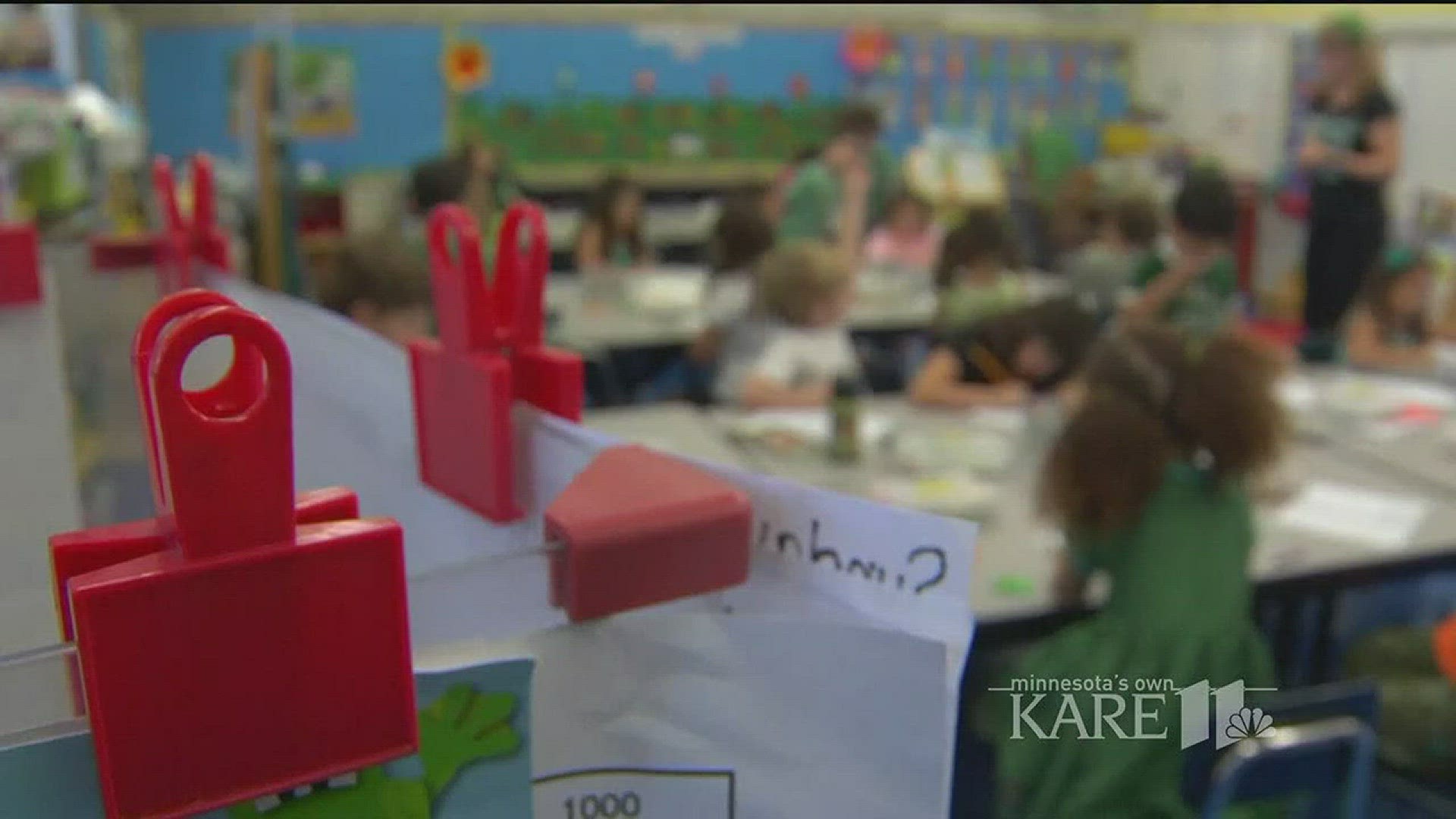Going back to school after a long summer off can provide a jarring change of routine for your kids, which in turn, can impact their health.
This week on KARE 11 Saturday Children's Minnesota Nurse Practitioner Hannah Kull stopped by to talk about healthy back-to-school habits, including keeping a balanced diet, getting enough physical activity, maintaining regular sleep patterns and handling anxiety.
How much sleep should my child be getting for school? The National Sleep Foundation recommends the following sleep guidelines:
- For preschoolers: 10-13 hours
- For school-aged kids: 9-11 hours
- For teens: 8-10 hours
- Right about now (mid-August) is when parents should start slowly putting kids to bed 15 minutes earlier at night and waking them up 15 minutes earlier in the morning to get them slowly back to their school schedule. It makes for a better start to the school year for everyone.
How do I keep my child on a healthy diet once they go back to school?
- You want to empower your child to make healthy decisions, so using the summer as a time to work with them developing a healthy diet is important. Teach by example: let them see you eating healthy and let them be part of the shopping or the meal prep.
- If your kids eat school lunch, talk to them about healthy choices and show them those choices when eating out together so they will be more inclined to do so when you are not around. If you pack your child’s lunch, this is a great way to know what they’re eating at school and a way to get some fruits/veggies in.
- Keeping easy, healthy, grab-and-go snacks in the fridge - like cut-up fruits and veggies and yogurt - is a good way to keep kids from munching on junk after school.
How can I help my kids with back to school blues or anxiety?
- If your child is going to a new school, visit the school a week before and see if you can get a tour to acclimate them to the building. Meet the teacher if possible so they know who to expect on the first day.
- If they are anxious (which many children are), talk through anxieties with them and get to the bottom of what is causing their fear, but don’t dwell on it. Have an action plan for more serious anxiety-provoking situations, such as bullying.
- An end of the summer BBQ with old school friends is an easy way to engage with those familiar faces and get re-acquainted. Perhaps they can plan to walk in together on the first day.
- While it varies from family to family, many children feel less anxious about school if they walk to the bus stop with a parent/s and can count on a parent waiting for them at the end of the day.
- With smaller children, playing school can help prepare children for what to expect and ease their worries about the process.
How can I teach my child about friendships and bullying?
- Bullying can have serious psychological effects on kids no matter what age. It is important to teach our kids to show empathy to those who are different and also to emphasize that ridiculing others for their differences is unacceptable. Kids should know it’s important to speak up to a teacher or parent if they see or hear someone, including themselves, being bullied.
- Talk to your kids about what it means to be a good friend and ways to show kindness at school; such as inviting kids that are eating alone to eat with them, welcoming a new kid at school to hang out with them, or giving a smile or hug to someone who is upset at school.
- Lead by example. Be a good neighbor, consider bringing your kids along to check in on the elderly or those who may be lonely as a way to show them how they can be kind and make a positive difference.

